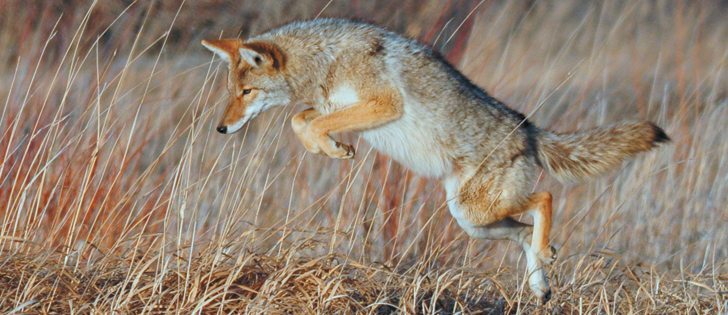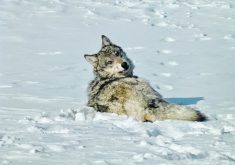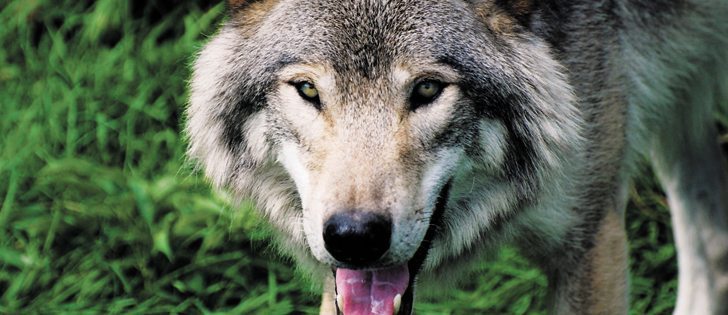MOOSE JAW, Sask. — Dave and Deb Spooner say they are overrun with coyotes and aren’t being properly compensated for the calves that they’ve lost.
The livestock producers from Qu’Appelle, Sask., said the Saskatchewan Crop Insurance Corp., which administers the province’s compensation program, doesn’t pay out on every animal found in similar circumstances and doesn’t allow them to appeal.
They told the Saskatchewan Cattlemen’s Association’s District 2 fall meeting last month that they lost three calves in a recent six-week period but received loss payments for only two of them.
Read Also

Farming Smarter receives financial boost from Alberta government for potato research
Farming Smarter near Lethbridge got a boost to its research equipment, thanks to the Alberta government’s increase in funding for research associations.
“I can’t tell you the number of calves I’ve lost over the last three years,” Dave Spooner said.
“I’m going to suggest it’s going to be close to 100. I have inspectors (adjusters) that come on to my farm and say this is not a predator related kill. And there is no appeal.”
He said predation specialists have told him they should be controlling the coyotes in his area. One trapper caught six of the largest he’d ever seen, Spooner said.
“We had predation specialists come out and snare, and in a three-and-a-half-mile radius he took 250 coyotes. Yet crop insurance is like, ‘oh, no, you don’t have a problem,’” said Deb Spooner.
Shawn Jaques, chief executive officer of SCIC, said there is an appeal process, and the corporation does offer assistance. Last year it spent $420,000 on prevention in addition to compensation.
He said the corporation will send predation specialists to work with the producers if adjusters who are investigating cattle losses indicate there is an issue at a particular farm.
“We have some agreements with trappers and experienced hunters,” he said.
“They know the movement of wild animals, they understand their behaviours and they work with producers in getting rid of those predators on that farm.”
Jaques said senior predation specialists are also sent if adjusters are unsure about whether a death is a result of a predator.
The program, which was implemented in 2010, has three options: pay 100 percent compensation, pay 50 percent if predators are the probable cause of death and deny a claim if there isn’t enough evidence to support it.
He said only 18 denied claims have been appealed since 2011.
There have been 1,700 claims so far this year and 1,600 have been paid, while some of the remaining are still being processed.
Jaques said there were 2,700 claims last year, and the program paid out just less than $1.5 million. The previous year saw 3,200 claims and payouts of $1.46 million.
However, producers say the program doesn’t adequately compensate them for their losses.
The minimum payment is $600 for beef calves, $150 for foals, $60 for lambs and $60 for goat kids.
The program also uses market sales data for the week before, of, and after a loss to determine a beef calf’s value and pays the highest of the three prices. The minimum is paid if the market price is lower than $600.
Philip Lynn, SCA director for District 2, said at the meeting that this method doesn’t compensate producers for the true value of a calf and what it costs them to keep a cow for the year without the potential calf sale.
Contact karen.briere@producer.com


















